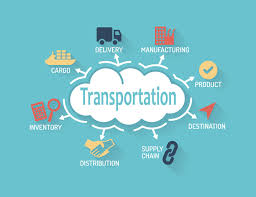for the reason worldwide supply chain rocketed into the mainstream news, the public has worked to make sense of the field and its terminology. The difference between supply chain and logistics is an especially commonplace source of misunderstanding. Newshounds and enterprise experts use the phrases interchangeably, leading many humans to anticipate they’re equal. While the 2 fields are interrelated, several key variations are essential to apprehend. Whether or not you’re interested in a supply chain control career or simply need to be extra informed, here’s what you need to recognize.
What’s the connection between the supply chain and logistics?
Most non-experts use “logistics” whilst speaking about a way to make something take place—I’ll handle the logistics of the aspen ride. In the delivery chain—and commerce greater broadly—logistics refers mainly to the garage, motion, and positioning of products and substances. In step with the chartered institute of procurement and supply, the delivery chain process encompasses all steps necessary to supply a consumer product. That includes:
- manufacturing planning: figuring out what materials might be important and while
- procurement: finding and obtaining resources
- inbound logistics: handing over raw substances from a factor beginning to the producer
- warehousing: storing elements before and after manufacturing
- outbound logistics: turning in products to retailers
- order success: making sure the give up-consumer gets the finished product
- logistics at every degree maintain the delivery chain transferring forward.
What are the differences between supply chain and logistics?
The supply chain has a broader scope than logistics:
- deliver chain is set creating an uninterrupted, cost-powerful float among client demand and the transport of finished items.
- Logistics is ready to make plans and organize operations to make sure the delivery chain and commerce techniques run smoothly.
A deliver chain manager’s (SCM) goal is to drive performance and advantage aggressive benefit. They increase techniques and lead projects to reduce money and time waste, even as ensuring delivery maintains up with demand. Logistics focuses more on mechanics. A logistics expert is chargeable for getting resources from factor a to point b, on time and within finances. They attempt to meet or exceed client expectancies for transport. Priorities are clear communique, proactive settlement negotiation, and monitoring of transportation pastimes. In preferred, equal logistics practices maintain the delivery chain moving forward, however, there are a couple of steps concerned inside the supply chain. These steps distinguish delivery chain jobs from logistics roles.
What types of jobs are in supply chain and logistics?
Supply chain and logistics professionals are in excessive demand. Some blurring nonetheless exists between the two fields, so schooling and enjoyment in one area normally interpret well by the other. Process descriptions may additionally range between companies, so continually test necessities before making use of them.

supply chain management
to bring a finished product to the client, the supply chain manager (SCM) has to coordinate a giant network of relationships. Supply chain managers broaden partnerships with distributors, transportation vendors, and plenty of other events. Supply chain managers are experts at:
- call for planning: coordinating the supply chain primarily based on purchaser needs
- strategy development: growing production and delivery pace without sacrificing exceptional or reliability
- relationship constructing: negotiating and retaining contracts that beef up their agency’s bottom line
logistics managers oversee the float of goods and substances along the supply chain. Their responsibilities include:
- cultivating enterprise relationships
- negotiating contracts
- growing schedules for inbound and outbound transportation
- keeping a logistics community that includes providers, garage facilities, transportation providers, and more
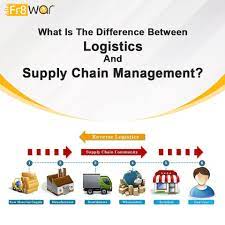
procurement managers
paintings at the start of the delivery chain. They make sure organizations have reliable assets for the products they want to create and promote. Procurement managers are answerable for:
- choosing companies primarily based on cost, availability, and first-rate substances
- optimizing buy schedules primarily based on demand and supply chain styles
- reading and improving buying charges
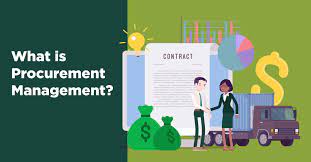
operations managers
paintings in the center of the supply chain. The role tends to involve more internal commercial enterprise administration, but many operations managers also have supply chain duties. The countrywide common earnings for operations managers is $70,865 per 12 months—near the compensation for a logistics supervisor. Typical process responsibilities consist of:
- coordination of production, income, and distribution
- budgeting, price management, and profitability
- deliver and call for
- forecasting
- staff control
relying on the agency, operations managers could have distinct levels of involvement with the wider supply chain:
large organizations regularly ask their operations manager to attention more to inner business logistics. Operations managers in smaller organizations will possibly wear a couple of hats. The smaller an organization is, the more likely an operations supervisor may have delivery chain obligations.
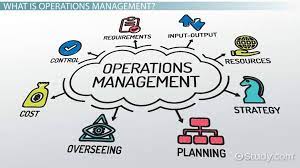
Warehouse management
warehousing is an essential issue of logistics and the delivery chain. A properly-run warehouse guarantees items attain the give-up consumer in time and in proper circumstances, without adding to the producer’s cost burden.
Warehouse managers have to understand:
- inventory control
- staff management
- operational performance
- workflow coordination
- collaboration with internal and outside logistics specialists
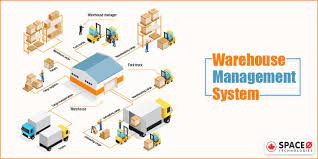
transportation managers
serve a critical function in logistics. A transportation supervisor coordinates the motion of goods and components, in particular in industries like production. A transportation manager ought to be able to:
- select the maximum suitable transportation techniques
- establish expectations approximately cost and timeframes
- liaise with transportation contractors
Becoming an expert in supply chain logistics
skilled supply chain specialists are constantly in excessive demand. Linkedin presently lists more than 200,000 supply chain jobs throughout the united states in industries ranging from healthcare to meals provider. Certifications support a candidate’s application. The council of supply chain control experts gives certification, a three-tiered credential for specialists at exclusive tiers. Some other choice is the affiliation for supply chain control, which offers three credentials:
- licensed in making plans and stock management
- licensed supply chain professional
- certified in logistics, transportation, and distribution
all certifications have eligibility requirements you’ll want to fulfill before testing. If you’re new to the delivery chain and logistics fields or looking to strengthen your profession, an internet path is regularly the high-quality vicinity to start. Edx gives stand-on my own publications, expert certificate, and even diploma programs from a number of the arena’s top institutions. The economic useful resource is to be had by individuals who qualify. In nowadays’s logistically complicated international, a skilled supply chain professional is well worth their weight in gold. Begin analyzing the delivery chain today for a profitable, profitable, and in-call for the profession.
